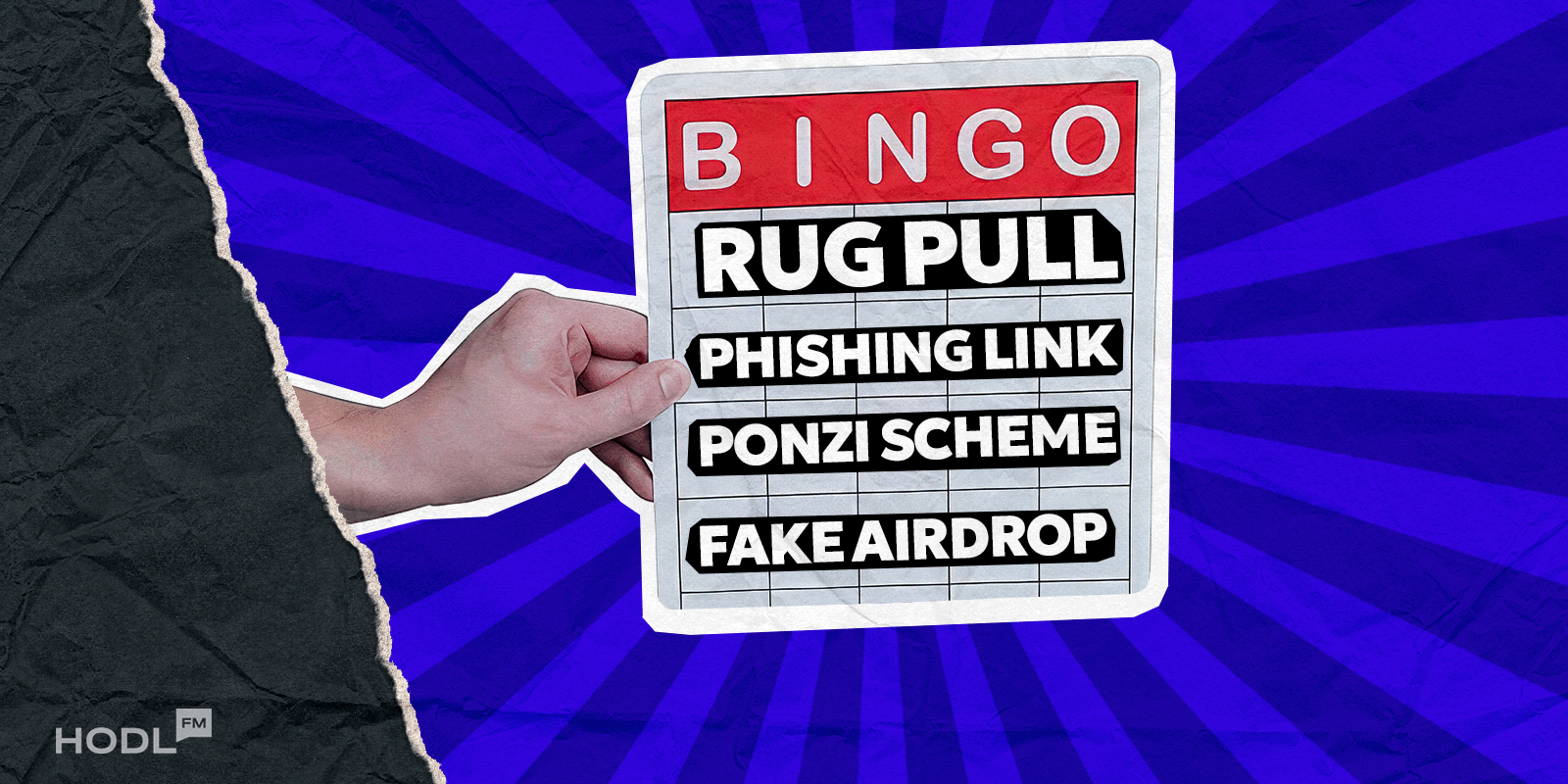Cryptocurrency scams are the modern-day snake oil salesmen, ready to fleece unsuspecting investors. These scams have become increasingly sophisticated, with fraudsters stealing $5.6 billion from Americans in 2023 alone. As digital currencies gain mainstream adoption, scammers are developing more creative ways to separate investors from their hard-earned money. Understanding these schemes and knowing how to protect yourself has become essential for anyone involved in the crypto space.
Social Media Giveaway Scams
You’re scrolling through Twitter when suddenly Elon Musk offers to double your Bitcoin. Sounds legit, right? Wrong! These are the type of give away scams as real as a three dollar Dogecoin.
On social media fraudsters will often impersonate popular figures or companies and promise to build off any cryptocurrency that is sent to them. Typically, these scams use artificial urgency — limited time offers — and ‘faked’ accounts to appear as legitimate.
Acting as if you are the victim, remember Legitimate giveaways do not make you send money first to get more back. Check the account using verified badges or official statements from the company or individual backing the giveaway.
Pyramid and Ponzi Schemes
Crypto pyramid and Ponzi schemes are all the shitty chain emails from the '90s, but also far riskier. Their scam features astronomical promise, and they masquerade themselves with complex jargon to make them seem legit. In reality however, they’re only perpetuating the house of cards by using new investors’ money to pay off the old ones until all is destroyed.
Often these schemes involve investment platforms with 'theatrical' profits which initially attract more deposits. The sign that should worry you most is the promise of guaranteed returns or demands that you recruit other investors. If the investment strategy is more complicated than quantum physics, chances are they are BS.
Fake Mobile Apps
Scammers design these fake cryptocurrency trading apps that look similar enough to the real platforms. On the surface these fake apps look legit as they are available on official stores like Google Play and even Apple App Store.
To be on the safe side you should view with caution and check the developer’s credentials if you download or enter any sensitive information. It’s probably best practice to only download apps from official stores, but even trusted positive reviews and ratings can be faked. Before all this, always do sufficient research about the app and the developer.
Phishing Scams
Crypto Phishing is quite literally the same thing as regular phishing but they’re not looking to steal your bank details, they’re trying to steal your private keys. This digital angling casts the huge net with fake emails, websites and messages all set to reel in your crypto trickles.
Scammers often produce very realistic replicas of well known trading platforms or wallet services. In order to avoid being pulled in by triple check URLs, you can enter any information two factor authentication all of your accounts first. The most important thing is that you never, ever share your private keys or seed phrases, not even with god himself.
CRYPTO BASICS! | Phishing 101 & How to Avoid It
— Sjuul | AltCryptoGems (@AltCryptoGems) February 3, 2025
Phishing is everywhere in the #Crypto world so here is a little reminder on what they are and how you can avoid them!
Stay safe and share this with friends that need a reminder! pic.twitter.com/warY9mLqGW
Vested Interests
Certain influencers and people who all proclaim that they’re crypto experts, promote one particular cryptocurrency and they don’t reveal that they have a financial interest in it. Some participate in “pump and dump” schemes or get paid to get involved. Here’s where it goes dark however. After inflating their own investments, they sell off to unsuspecting followers.
The allure of quick money is very tempting, but you need to remain skeptical about the advice and do a thorough research before investing in anything. Remember to research the background of the influencer or celebrity. Check if they have a history of promoting scams or if they disclose their financial interests. Be aware, don’t rely on anything someone says, spoil you then you won’t get anything out of it.
Cryptocurrency Investment Scams
The fake trading platforms often make investment scams, as they portray artificial profits to give people a temptation to make huge deposits. But these scammers present themselves as smooth talking, offering eye-watering returns that any bullish Wall Street trader would be shaking their head at. Once a person has invested a lot of money, the victims are typically locked out of their accounts.
Any platform that immediately started to require upfront fees or promise regular returns had better be treated with extreme caution. Do a bit of research on the platform or investment opportunity and don’t be a victim. You’re looking for team details, whitepaper, real user reviews. Be cautious of platforms where you have to pour more money to withdraw your earnings.
Fake Websites
These are websites designed to look like legitimate cryptocurrency exchanges or wallet services, aiming to capture your login credentials or funds. Fraudulent sites may have similar domain names but slight variations from the authentic platforms. Always double-check URLs, look for security certificates, and verify the platform's legitimacy through independent research.
You can be more careful to always type in the URL manually or use bookmarks for known sites. Avoid clicking on links from emails or social media. Finally ensure to check for subtle differences in domain names or look for signs of poor design or outdated information.
Pump and Dump Schemes
It’s a form of cryptocurrency fraud, wherein scammers manipulate a coin’s price by launching misleading statements and carrying out mass buying – pump and dump. When the price rises, these fraudsters unload their holdings, which then crashes and leaves the unwary investor taking huge losses.
Typical Bitcoin Pump-and-Dump Scheme:
— Jacob King (@JacobKinge) January 23, 2025
1. Create a fake narrative about U.S BTC reserve.
2. Buy a massive amount of leveraged long BTC.
3. Tweet "Big things coming" with a 10 AM fake announcement tease.
4. At 10 AM, post nothing & dump all positions.
Easy few million in profits.… pic.twitter.com/t0nJwvnpWl
If you join a cryptocurrency, be on your heels at all times for spikes in the value, especially sudden unexplained spikes that accompany social media promotion. Always exercise caution when you find investments promising rapid, high returns, with assurances of insider information, or 'guaranteed' offers. Don’t forget that few investments offer you such enticing prospects without a reasonable amount of risk.
Fake Celebrity Endorsements
Often they take advantage of celebrity influence by creating fake social media accounts and websites with no authorized celebrity photos appearing. Typical of such schemes, they often sell 'exclusive' investment opportunities or tantalizing giveaways to gullible victims who are promised celebrity endorser profits.
To avoid these scams, you should always check if you’re dealing with a celebrity endorsement on any unverified channels, or face the chances of falling for such scams. When you see endorsements that seem too promotional or out of character, be especially wary. Remember that someone who genuinely makes it into this industry won’t bother to reach out to you over cryptocurrency investments.
Fraudulent Initial Coin Offerings
These scammers use fake projects or misrepresent other real projects and trick investors with the promise to deliver astronomical returns. Often, they use websites and whitepapers dedicated to plagiarizing the language of real projects to make them look credible. Red flags include poor written materials, promises that are not realized and no verifiable information on the team.
Fraudulent initial coin offerings (ICOs):
— DYOR 💎 (@DyorCryptoMind) December 22, 2024
An initial coin offering, or ICO, is a way for cryptocurrency startups to raise money from future users. Generally, customers are promised a discount on new cryptocurrencies in exchange for sending active cryptocurrencies, such as…
Even some scammers create false celebrity endorsements in an effort to increase credibility. Once they have funds from the public, they disappear and leave tokens worthless to investors. For your own safety, thoroughly research the project team, the whitepaper, and any celebrity endorsements. If an ICO seems a bit too good to be true — it probably is. There is no substitute to diversification and don’t invest more than you can afford to lose always.

Disclaimer: All materials on this site are for informational purposes only. None of the material should be interpreted as investment advice. Please note that despite the nature of much of the material created and hosted on this website, HODL FM is not a financial reference resource and the opinions of authors and other contributors are their own and should not be taken as financial advice. If you require advice of this sort, HODL FM strongly recommends contacting a qualified industry professional.





